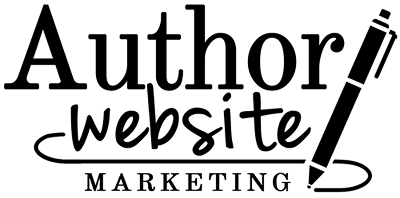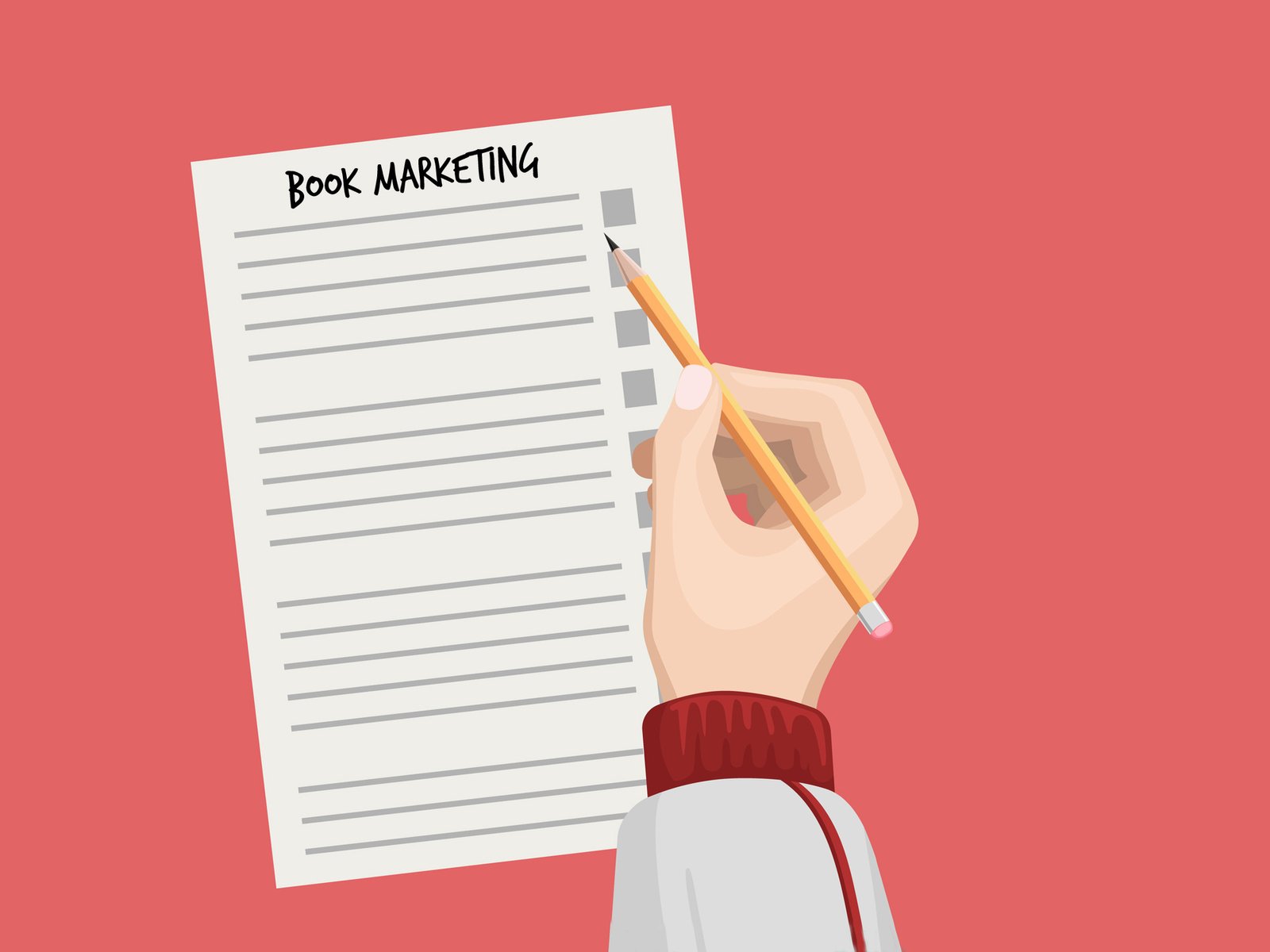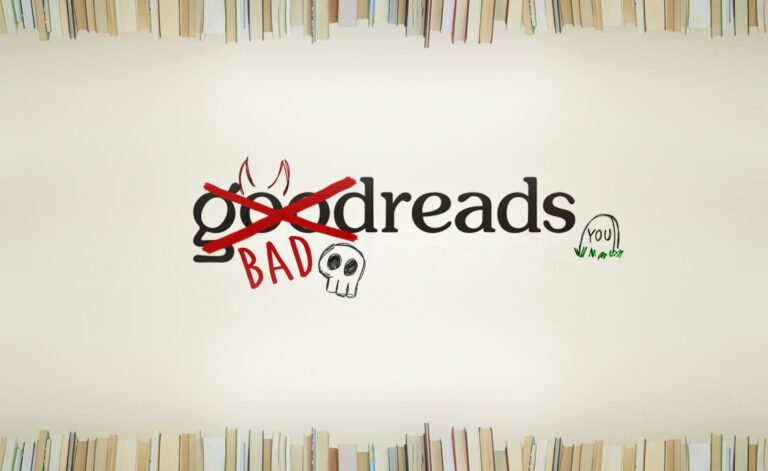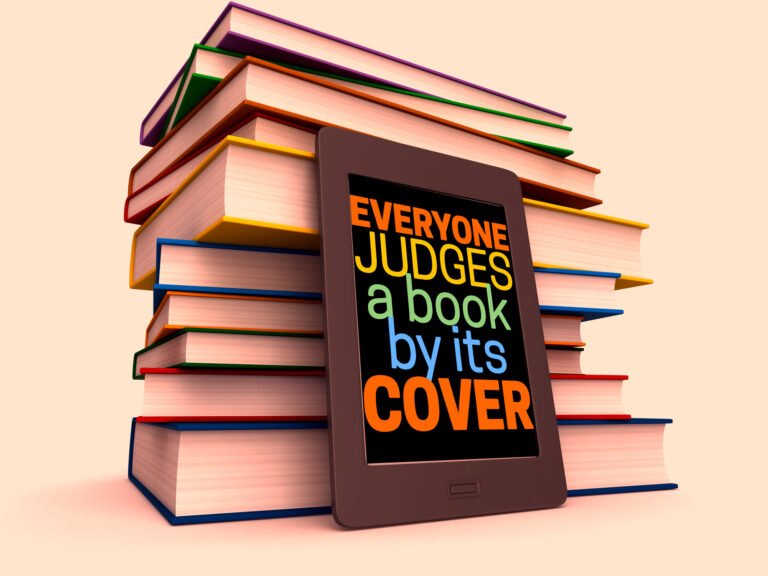11 Book Marketing Must-Haves: A Checklist for First-Time (and Experienced) Authors
For debut and first time authors, the publication of your book can be both exciting and stressful. Even if you’ve had a few books published, you’ll feel the same nerves. Top of mind might be the question: What should I be doing in terms of book marketing? Am I doing enough?
As the author of four books (one self-published, three traditionally published) and the creator of Author Website Marketing, I’m here to give you a comprehensive run-down of every marketing activity you should check off your list.
1. Have a good author photo taken
You’ll need an author photo for your Amazon listing, for your author website, for social media, and for any media appearances you make. If you have a traditional publisher, they’ll request one, to put on the book jacket and to feature on their website.
I know many people hate having their photo taken (I’m one of them!), but it’s non-negotiable, I’m afraid. Luckily, I have a whole guide about how to get a stunning author photo.
2. Get an author website
A website, one that you own, that’s entirely dedicated to your books and you as an author, is the foundation of your book marketing strategy.
What’s the first thing readers will do after they’ve read (and loved!) your book? They’ll google you. They’ll want to know who you are, what you look like (I know, I know, but that’s why you need a good author photo), what else you’ve written, and what you’re writing next.
A great website adds legitimacy to you as an author. It provides an easy way for readers to contact you. It may bring you new opportunities, like being asked to appear at a literary event. Most of all, it’s your long-term home on the internet.
If you’re looking for easy, low-cost author website plans, check out the packages I provide.
A website should also be part of your plan to start building an author newsletter…
3. Set up a mailing list (with an incentive to sign up)
Email newsletters are a wonderful way of keeping in touch with real readers who are genuinely interested in you and your writing.
Whenever a reader looks you up online, you should try to reel them in and get them to join your newsletter. You may only start with a few dozen sign-ups, but those numbers will grow over time. Remember, these are people who are very likely to buy your next book – provided you tell them about it, through your newsletter.
Of course, not everyone wants to give away their email address to you and risk receiving spammy or boring messages. That’s why you should include bonus content or a “reader magnet” that is exclusive to newsletter subscribers.
The bonus content, hosted on your website, could be extra chapters from your latest novel, a short story or novella, or a some type of “declassified” document. As long as it’s genuinely interesting, it will entice people to sign up.
For more about reader magnets, read my guide to adding newsletter subscribers using bonus content.
4. Build up as many (real) reviews as possible
Many readers, before they choose to buy a book, will check out the reviews on Amazon or Goodreads. Seeing a few positive reviews of your book may be all it takes to prompt them to click Buy.
But how do you get those reviews?
If you’re traditionally published, your publisher may already have a pre-publication plan that includes sending out ARCs (advanced reader copies) to influencers.
If you’re self-published or indie-published, it will be your responsibility to do the same, either by approaching book influencers directly or using a service like BookSirens or Netgalley.
Don’t forget about your circle of friends and family, either. Presumably they’ll be buying your book around publication day, and it’s always worth prompting them to leave an Amazon review.
In general, once your book is out, and people start telling you they’ve read it, make a habit of replying with, “Thank you! Would you consider leaving an Amazon review?”
5. Stake a claim on social media
Social media is not the silver bullet for marketing that many authors would hope. You have to invest in a particular platform, engage with other users in a genuine way, and post interesting content on a regular basis. Even then, you may only sell a few dozen copies of your book.
That’s not to say social media is useless, though. It’s a good way of getting the word out about your book to your friends and acquaintances. And you can build real connections with strangers over time. Plus, once they’ve read your book, you’ll find readers will be eager to tag you in social media posts about your book.
It’s up to you how much time and energy you put into social media, but it’s worth staking a claim on the major platforms by creating an account, adding a profile picture, and posting on it a little.
When it comes to posting regularly, it’s often easy to cross-post and re-purpose content on a number of social media sites. However, if it’s overwhelming to you to try and master five different platforms, just pick one (perhaps Instagram or TikTok) as your core focus.
6. Prepare promotional content ahead of time
Once you have an author website and newsletter, you’ll need content for them. That could mean articles, blog posts, photos, videos. This is a way of using “content marketing” to publicise your book without feeling sleazy.
It’s a good idea to start drafting promotional content ahead of time, along the lines of:
– 3 things that inspired my new book
– 5 surprising things I discovered while researching my new book
– The biggest mistake I made while writing my new book (and how I fixed it)
This is great content to post around publication day, because it provides a way of saying “hey, I’ve got a book out!” without actually needing to say, “hey, I’ve got a book out!”
Trust me when I say you’ll be too overwhelmed during publication week to write this type of content, so it’s a smart idea to prepare it in advance.
7. Organise a book launch event
If you’re very, very, very lucky, your publisher will organise a book launch event for you. For the rest of us mere mortals, it’s up to us to do the gruntwork.
The event doesn’t need to be lavish. Hold it in an indie bookshop, a room above a pub, or in your own home. The important thing is to celebrate a huge achievement in your life. (Well done, you. Raise a glass!)
The book marketing part of it is that you’ll hopefully sell a few dozen books all at once. And remember to ask everyone in attendance to leave an Amazon review. Plus, don’t forget to post about it on social media, so you’ll give all your followers FOMO and prompt them to check out your book.
Read my full guide to organising a spectacular book launch event.
8. Get some swag
Whether it’s bookmarks, postcards, enamel pins, tote bags or mugs, it can be good to order some “swag” to reward readers.
Plus, let’s be honest, this type of merch looks really cool, provided it’s designed well. (Check out my graphic design services for authors.)
A word of warning: don’t go crazy ordering swag, unless you’re sure you have an avenue to give it away. If you’re holding a book launch event, appearing at a literary event, or running a giveaway, these can all be good opportunities to give away some goodies.
However, if you’re going to order 50 branded tote bags and they’re going to sit in your house, gathering dust – don’t bother!
9. Get comfortable with public speaking
Gulp. I know. Most authors are happier hiding behind a laptop that stepping out onto a stage.
Despite this, having a book published often goes hand in hand with public speaking. You’ll need to give a reading at your book launch event. You’ll be interviewed on podcasts or the radio. You’ll start creating TikTok content. You’ll be invited to speak at literary events.
All of these can be wonderful experiences – provided you’re comfortable with public speaking.
I recommend practicing public speaking ahead of the publication of your book, by joining Toastmasters. There are clubs in every major city around the world, and they offer a friendly, supportive environment in which to improve your public speaking.
Personally, I found Toastmasters a genuinely transformative experience. I used to be a shy person who’d dread a public speaking engagement like it was a visit to the firing squad. Now I’m a confident public speaker who’s given presentations in front of hundreds of people – and got paid for it.
10. Find a community of other authors
Many authors experiencing the pre-publication day nerves can feel very alone. “This is supposed to be a good thing, right? I dreamed about this. So why do I feel so anxious?”
Once you find your “tribe” of other authors, you’ll learn that everyone feels this way. I recommend seeking out writing groups in your local area, and/or making friends with other authors online. (Facebook may be outdated, but Facebook Groups are a surprisingly good way to connect with other published authors.)
Plus, authors are some of the best people on earth, so you’re bound to make some new friends.
If you’re based in Bristol or South West England, check out Bristol Fictionists, a monthly meetup for authors.
11. Give yourself a break
Phew! If you’re feeling exhausted by all the book marketing you need to do to prepare for publication day, I get it. That’s why it’s important to give yourself grace.
You have limited time and energy and you’ll probably have to skip certain marketing activities – at least for now. Make strategic decisions about what you do in terms of marketing and shelve the rest for the future.
Also remember that every single book sold is a victory. I find this mindset useful. If I persuade one person to read my book, they could become a new fan, who recommends their book to everyone they know.
Good luck with the publication of your book and please do get in touch if you need an author website, author newsletter, bookmarks, or any other marketing help.







